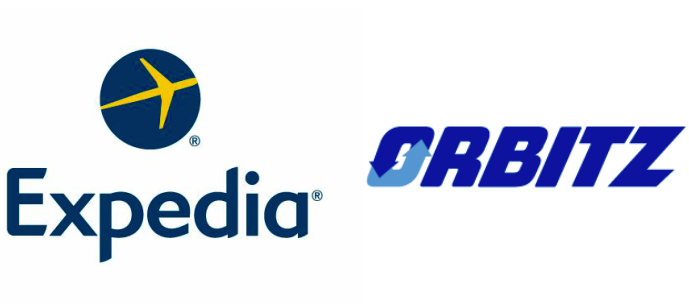Hotel Industry Comes Out Against Merger Of Expedia & Orbitz
 You might think of Expedia, Hotels.com, Hotwire, Travelocity, and Trivago as competitors in the online travel-booking business, but most people probably don’t know that all of these brands fall under the Expedia Inc. ownership umbrella. And so will Orbitz if the pending $1.6 billion merger of the two companies is approved. The leading hotel industry trade group says that this consolidation has gone too far.
You might think of Expedia, Hotels.com, Hotwire, Travelocity, and Trivago as competitors in the online travel-booking business, but most people probably don’t know that all of these brands fall under the Expedia Inc. ownership umbrella. And so will Orbitz if the pending $1.6 billion merger of the two companies is approved. The leading hotel industry trade group says that this consolidation has gone too far.
The U.S. Justice Dept. is currently reviewing the Expedia-Orbitz deal to see if there are any antitrust concerns, and today the American Hotel & Lodging Association let it be known that it believes there are; that the merger would concentrate too much of the market in one company’s hands.
“We believe this transaction and the resulting consolidation of the online travel marketplace will result in significant negative consequences,” says Katherine Lugar, president and CEO of AH&LA, in a statement, “particularly for consumers, but also for the large number of our members who are small business owners and franchised properties.”
Lugar acknowledges that sites like Expedia and Orbitz have generally been a boon for the hospitality industry and that hotels were among the earliest adopters of online booking. But she claims that a combined Expedia and Orbitz would control around 75% of America’s online travel agency (OTA) market.
That would leave only Priceline — which not only runs its namesake site, but also Kayak.com, Booking.com, and others — as a major competitor in the OTA field. Together, argues the AH&LA, a merged Expedia-Orbitz and Priceline would effectively create a duopoly that controls 95% of the market.
“The loss of Orbitz could be detrimental for many reasons,” says Lugar, noting that one less competitor means less incentive to innovate for the benefit of consumers. She also explains that Expedia’s commissions to hotels are 11% higher, on average, than those charged by Orbitz.
“The acquisition could result in Orbitz raising its rates to that level, further driving up distribution costs for hotel operators,” contends Lugar.
The AH&LA argues that the hotels most directly affected by an Expedia-Orbitz merger would be smaller, boutique operators who often depend on booking sites for reaching consumers.
“We also believe the combination of Expedia and Orbitz will cause small and independent hotels to pay significantly more to advertise online in the increasingly pay-to-play ecosystem of online search,” concludes Lugar. “Taken together, these effects could substantially drive up the cost of doing business for small and independent hotels to the ultimate detriment of consumers.”
In response, a rep for Expedia tells the Wall Street Journal that the company has no intention to charge higher commissions post-merger. Expedia also claims that it’s just a “small player” in the huge travel-booking industry, saying that OTAs only account for about 17% of all hotel bookings in the U.S.
Want more consumer news? Visit our parent organization, Consumer Reports, for the latest on scams, recalls, and other consumer issues.

